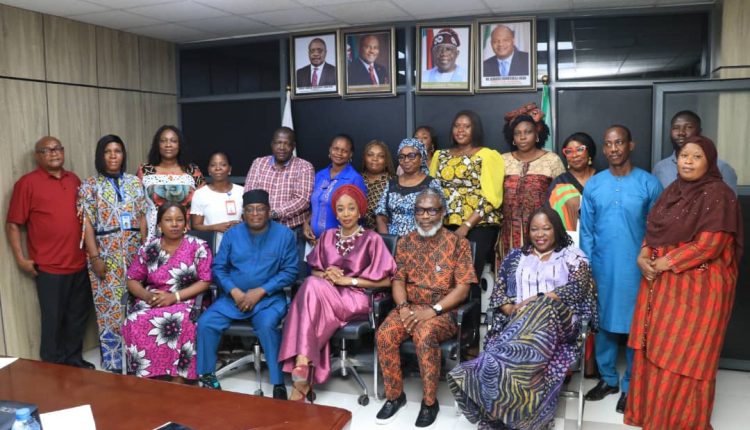Nigeria’s missed opportunity: Why we need a definition for women-owned businesses now
By Agbaidu C. Jideani, Director General, Abuja Chamber of Commerce and Industry (ACCI)
In boardrooms, markets, farms, and digital spaces, Nigerian women are driving enterprise, generating jobs, and sustaining livelihoods. Despite their contributions, women entrepreneurs still face significant challenges in accessing finance, securing contracts, or qualifying for government support. One of the major reasons for this is that Nigeria does not have a definition for what qualifies as a Women-Owned Business (WoB).
This policy gap has created a silent barrier that limits access to opportunities and leaves millions of women entrepreneurs on the margins of economic growth.
Across Africa, countries that have defined what constitutes a women-owned business have used it to unlock tailored financing schemes, inclusion in public procurement, and genderresponsive policy development. In contrast, Nigeria’s lack of clarity creates confusion. Government agencies, banks, and donors have no standard benchmark to determine who qualifies as a WoB.
As a result, many women fall through the cracks, unable to access the very tools designed to support them. Without a definition, how can we collect gender-specific business data or design programs that close the persistent inequality gaps?
To address this, the Abuja Chamber of Commerce and Industry (ACCI), with the support of the Investment Climate Reform (ICR) Facility, facilitated a landmark dialogue involving government, civil society, women’s business networks, and the private sector.
This process culminated in the adoption of a working definition on May 1, 2025, by ACCI and its MDA partners under a Joint Action Committee. It states: A women-owned business is any sole proprietorship owned by a woman, or a company or partnership with more than 51 percent female ownership.
This definition is not arbitrary. It aligns with international benchmarks while reflecting Nigeria’s unique sensibilities and on-the-ground realities. It was designed to be verifiable, culturally appropriate, and inclusive, particularly avoiding complex certification systems that often exclude micro and small businesses, especially those led by rural or informal women entrepreneurs.
While no definition can perfectly fit every context, the 51 percent threshold offers a workable standard. It acknowledges practical realities such as shared ownership between spouses or equity dilution during fundraising, yet still ensures a credible threshold for women’s control and participation.
What the Joint Action Committee has put forward is a pragmatic middle ground; a definition that maintains integrity and ease of verification, while harmonizing with global norms. The real question now is whether Nigeria will seize this opportunity and move from concept to national commitment.
While others move forward, Nigeria risks being left behind. Women-led enterprises remain significantly underrepresented in public procurement, with less than 5 percent of government contracts awarded to women-owned businesses (Open Contracting Partnership, 2022). Women entrepreneurs also face higher barriers to finance. According to the Central Bank of Nigeria (2024), they are 20 percent more likely to be denied loans compared to their male counterparts. The World Bank (2023) estimates that women-owned businesses in Nigeria face an annual financing gap of $1.5 billion.
A 2023 report by McKinsey & Company projects that unlocking the potential of women entrepreneurs could add over $1 trillion to Africa’s GDP by 2030, with Nigeria standing to benefit the most. But without a formal WoB definition, we are simply not positioned to tap into this economic goldmine.
Why, then, has this not yet been realized? The delay can be attributed to bureaucratic inertia, fragmented coordination, and competing development priorities. Nonetheless, these challenges no longer constitute justifiable barriers. The momentum is building, and the path toward a nationally recognized definition of women-owned businesses has never been clearer.
The ACCI, with backing from the ICR Facility, co-funded by the European Union, the Organisation of African, Caribbean and Pacific States, the German Federal Ministry for Economic Cooperation and Development (BMZ), and the British Council, is advocating for the formal adoption of the WoB definition at the national level.
To this end, ACCI and the Joint Action Committee are actively mobilizing. On June 10, 2025, ACCI and the Joint Action Committee will host a Business Breakfast to bring together government agencies, representatives of financial institutions, women’s business groups, and other key players to push this agenda forward.
This is a pivotal moment. Adopting a national definition of women-owned businesses is not just about words on paper. It is about giving millions of women their rightful place in the economy, unlocking inclusive growth, and boosting Nigeria’s global competitiveness.
Let us not miss this opportunity. Let us define what matters.



Comments are closed, but trackbacks and pingbacks are open.